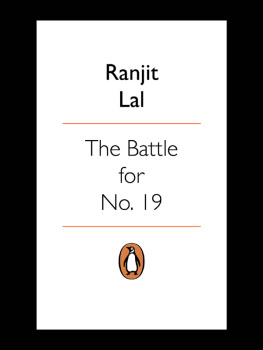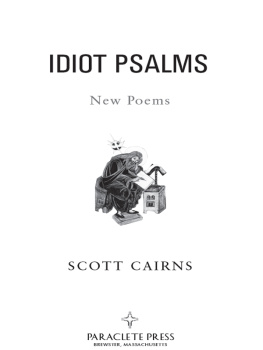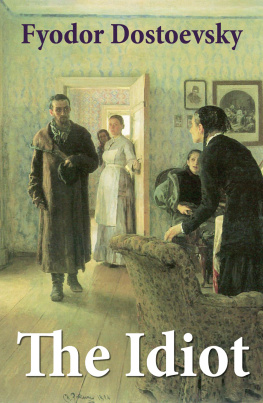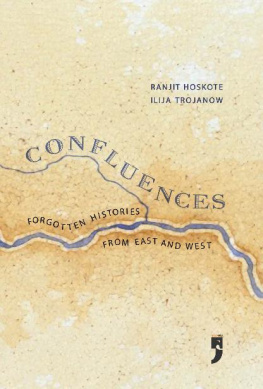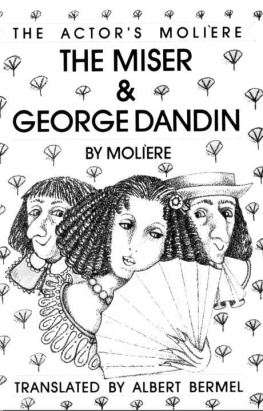Bolt Ranjit - The miser ; The idiot
Here you can read online Bolt Ranjit - The miser ; The idiot full text of the book (entire story) in english for free. Download pdf and epub, get meaning, cover and reviews about this ebook. City: London, year: 2001, publisher: Oberon Books, genre: Detective and thriller. Description of the work, (preface) as well as reviews are available. Best literature library LitArk.com created for fans of good reading and offers a wide selection of genres:
Romance novel
Science fiction
Adventure
Detective
Science
History
Home and family
Prose
Art
Politics
Computer
Non-fiction
Religion
Business
Children
Humor
Choose a favorite category and find really read worthwhile books. Enjoy immersion in the world of imagination, feel the emotions of the characters or learn something new for yourself, make an fascinating discovery.

- Book:The miser ; The idiot
- Author:
- Publisher:Oberon Books
- Genre:
- Year:2001
- City:London
- Rating:4 / 5
- Favourites:Add to favourites
- Your mark:
- 80
- 1
- 2
- 3
- 4
- 5
The miser ; The idiot: summary, description and annotation
We offer to read an annotation, description, summary or preface (depends on what the author of the book "The miser ; The idiot" wrote himself). If you haven't found the necessary information about the book — write in the comments, we will try to find it.
The miser ; The idiot — read online for free the complete book (whole text) full work
Below is the text of the book, divided by pages. System saving the place of the last page read, allows you to conveniently read the book "The miser ; The idiot" online for free, without having to search again every time where you left off. Put a bookmark, and you can go to the page where you finished reading at any time.
Font size:
Interval:
Bookmark:
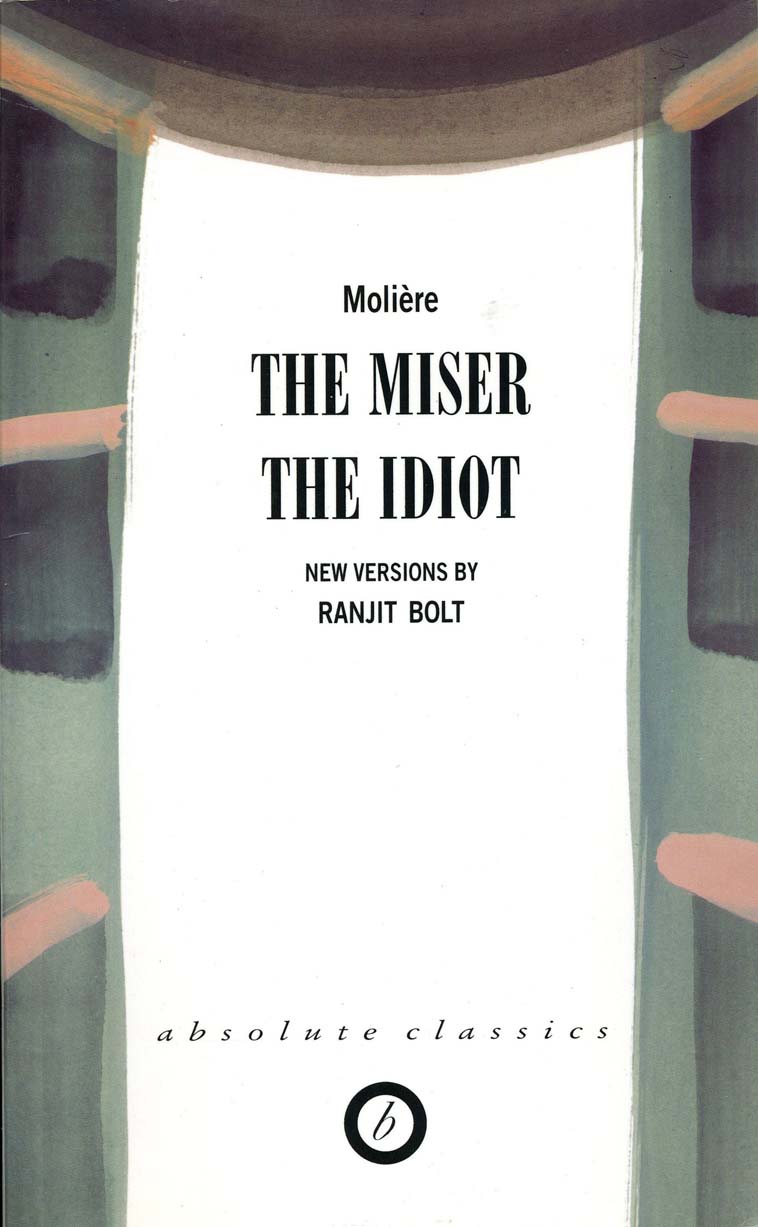

521 Caledonian Road, London N7 9RH
Tel: +44 (0) 20 7607 3637 / Fax: +44 (0) 20 7607 3629
e-mail:
www.oberonbooks.com Translations copyright Ranjit Bolt 2001 Ranjit Bolt is hereby identified as author of these translations in accordance with section 77 of the Copyright, Designs and Patents Act 1988. The author has asserted his moral rights. All rights whatsoever in these plays are strictly reserved and application for performance etc. should be made before commencement of rehearsal to Curtis Brown Group Ltd., 5th Floor, Haymarket House, 28/29 Haymarket, London SW1Y 4SP (). No performance may be given unless a licence has been obtained, and no alterations may be made in the title or the text of the play without the authors prior written consent. You may not copy, store, distribute, transmit, reproduce or otherwise make available this publication (or any part of it) in any form, or binding or by any means (print, electronic, digital, optical, mechanical, photocopying, recording or otherwise), without the prior written permission of the publisher.
Any person who does any unauthorized act in relation to this publication may be liable to criminal prosecution and civil claims for damages. A catalogue record for this book is available from the British Library. PB ISBN: 9781840022162
E ISBN: 9781783192540 Cover design: Andrzej Klimowski Typography: Richard Doust Converted by Replika Press PVT Ltd., India Visit www.oberonbooks.com to read more about all our books and to buy them. You will also find features, author interviews and news of any author events, and you can sign up for e-newsletters so that youre always first to hear about our new releases.
The subject of this satire greed greed carried to the level of a violent, consuming and bizarre obsession is of course timeless. One can imagine the agonies our anti-hero, Harper, would have gone through over, for example, Midday Money on the Richard and Judy Show, frantically calculating the phone bills on the one hand, weighing up the risks of not trying on the other and generally twisting himself into avaricious knots. Our era would have suited him, I think. We may not, most of us, be misers, but our fascination (obsession?) with money is undeniable, and amply catered for by our media vis: Who Wants To Be A Millionaire, The Weakest Link (where people are actually prepared to have their self-esteem demolished, perhaps irreparably, for the sake of a couple of grand in the hand) Richard and Judy, that advert you may or may not have seen for something called equity release, etc etc. To say nothing of the endless leaflets from banks and building societies, now pleading with us to borrow, now badgering us to save, at ever more attractive rates a plethora of information that causes the modern Harper almost to implode with worry, to turn, scorpion-like, on himself. It sounds pat, but there is a bit of Molires Harpagon in all of us, today as much as ever, and that is why he has become Harper.
So we make no apologies to the purists for choosing a present day setting (and indeed, following the same logic spacially, an English one) and if that has necessitated one or two outrageous tweaks to the text (and I stress, only one or two) well, some might say, so much the better. On the other hand, we have, I hope, also done justice to the theatrical roots, albeit loosely laid down, of Molires play I mean in the commedia dellarte, and perhaps also Roman comedy. There are, in this play, and despite the fact that Molire is aiming at a more sophisticated, psychologically-aware brand of comedy, distinct vestiges of that other comic world, one peopled by stock characters wily servants, foolish old men, feckless sons and adorable females (too adorable, perhaps, for a modern taste). But, finally, the commedia would never have come up with a brilliant touch like Harpagons mention, in one of his soliloquys, of how envious he is of people who are able simply to leave their money in bank deposits, where they can earn a nice rate of interest on it! It is a lovely insight into the nature of obesessionality a man who can clearly see a wiser course, yet is wholly unable to act on his perception, so completely gripped is he by his monomania. Here we are in a different world altogether that of a very shrewdly-drawn comedy of character more reminiscent of Ben Jonson than Plautus, or Italian farce. The other play in this volume, The Idiot (1655) is Molieres first full-scale comedy, and had its first production in Lyon in 1655, when the playwright was already thirty-three.
It is as far removed in character from The Miser, almost as it could possibly be. It stands right at the opposite end of the Molire spectrum. Where The Miser has a fairly serious satirical and moralising agenda, for all its ostensible insouciance and farcicality, what we have in The Idiot is a completely straightforward farce, a French take on Roman comedy and the commedia dellarte, with stock characters like the wily servant; his amorous, irresponsible, more or less doltish young master; a gullible old man; a rapacious merchant and so on. As one would expect, being from that stable, it comprises a series of comic set-pieces whose purpose is solely, wholly to amuse. That is not, however, to detract from the play, which is a tour de force in its skilful handling of what is, in essence, a single running gag. And the whole is suffused with an immense winsomeness, a gentle, Terentian humour that is thoroughly engaging.
Rarely, one imagines, has disbelief been so cheerfully, charmingly suspended! Ranjit Bolt
London, 2001 THE MISER
a miser ELEANOR
his daughter, in love with Victor VICTOR
his butler, in love with Eleanor CHARLIE
his son, in love with Marianne MARIANNE
a poor girl, in love with Charlie FAY
a matchmaker MR SIMON
a financial intermediary FLETCHER
an operator JACK
Harpers chauffeur-cum-cook SIR ARTHUR EDGERTON
a tycoon A DETECTIVE CLAUDIA/MERVIN
servants in Harpers house This translation of The Miser was first performed at The Chichester Festival Theatre on 26 July 1995, produced by Duncan C Weldon. It was then performed in this version at The Salisbury Playhouse on 20 April 2001, with the following cast: HARPER, Brian Poyser
CHARLIE, Jamie Bradley
ELEANOR, Fenella Woolgar
VICTOR, Stephen Billington
MARIANNE, Lisa Ellis
FAY, Maggie Norris
FLETCHER/CLAUDE/DETECTIVE, Michael Hodgson
SIR ARTHUR/MERVIN/MR SIMON, Graham Howes
JACK, Shaun Prendergast
Director, Richard Beecham
Designer, Richard Foxton
Lighting Designer, Peter Hunter
Sound Designer, Paul Stear
Assistant Director, Douglas Rintoul
Stage Manager, Julia Reid
VICTOR: How can you possibly love me too much? Were going to married arent we? ELEANOR: Of course. But theres still a serious obstacle. VICTOR: There is? ELEANOR: My father. Im terrified of him. VICTOR: With good reason. ELEANOR: What will he think about me marrying his butler? VICTOR: Ellie, what does it matter what he thinks, as long as you love me? ELEANOR: But what about you? Do you really love me? VICTOR: How can you ask that? ELEANOR: You might change your mind.
Font size:
Interval:
Bookmark:
Similar books «The miser ; The idiot»
Look at similar books to The miser ; The idiot. We have selected literature similar in name and meaning in the hope of providing readers with more options to find new, interesting, not yet read works.
Discussion, reviews of the book The miser ; The idiot and just readers' own opinions. Leave your comments, write what you think about the work, its meaning or the main characters. Specify what exactly you liked and what you didn't like, and why you think so.






